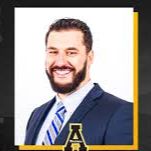Everyday Impact of Schizophrenia
Schizophrenia can make everyday tasks in St. Louis feel harder, like focusing during a shift at a hospital or restaurant, riding the MetroLink, or keeping up with bills and appointments. You might hear or see things others don’t, or feel suspicious or overwhelmed in busy places like the Soulard Farmers Market, making errands or a trip to Forest Park exhausting. At work or school, concentration and memory can slip, and stress may build, while relationships with family and friends can feel distant because it’s tough to explain what you’re going through. You’re not alone—many people in St. Louis face this, and support can help make daily life steadier.
How to Recognize Schizophrenia
- You might notice changes in thinking or perception, like hearing whispers when riding the MetroLink or feeling certain a TV anchor is sending you secret messages.
- Strong beliefs that others are watching or plotting against you, even when friends or family reassure you otherwise, can feel especially intense in crowded places like Busch Stadium or the Soulard Farmers Market.
- Conversations may become hard to follow—losing your train of thought in class at SLU or WashU, or struggling to finish a simple task at work.
- Emotions and motivation can shift: pulling away from friends, skipping activities you used to enjoy in Forest Park, or finding it tough to get out the door for everyday errands.
- You may see or hear things others don’t, feel unusually confused or jumpy, or have trouble caring for yourself—signs that it could help to reach out for support in St. Louis.
Contributing Causes and Risk Factors
Schizophrenia arises from a mix of biological factors like genetics, brain chemistry, and early neurodevelopment, combined with psychological stress and trauma. Environmental influences—such as prenatal complications, substance use, chronic stress, and social or economic pressures that many people in St. Louis may face—can also play a role. It’s a complex, multifactorial condition, not a personal weakness or anyone’s fault. With understanding and support, people can manage symptoms and build meaningful lives.
Treatment and Recovery Options
Effective, proven treatments for schizophrenia are available and can help you live well. Antipsychotic medications—including long-acting injectables and clozapine for treatment-resistant symptoms—reduce hallucinations, delusions, and relapse risk. Cognitive behavioral therapy for psychosis (CBTp) builds skills to manage voices and unhelpful beliefs, while family psychoeducation strengthens communication and lowers stress at home. Social skills training and supported employment/education (IPS) boost confidence and help you return to school or work. Coordinated specialty care and assertive community treatment (ACT) provide team-based support that improves functioning and quality of life.
In St. Louis, you can access coordinated care through major health systems and community agencies such as BJC Behavioral Health, SSM Health, Mercy, and Places for People. NAMI St. Louis offers free support groups and classes, and the Independence Center clubhouse provides peer community, vocational help, and daily structure. Behavioral Health Response and 988 offer 24/7 crisis support, with mobile outreach available when needed. Build momentum with self-care: follow your medication plan, keep a regular sleep schedule, limit substances, practice stress-reduction, exercise, and create a relapse prevention plan or WRAP. Reach out today to connect with local providers and peer supports that can help you take the next step.
Why Professional Guidance Matters
Working with a licensed clinician ensures safe, evidence-based care and coordinated medication management that’s essential for Schizophrenia. Licensure verifies rigorous training, supervision, and quality standards you can trust. Many St. Louis providers offer telehealth and accept insurance, making expert support more accessible and affordable. MiResource helps people in St. Louis filter for licensed, in-network providers who specialize in Schizophrenia.
Where to Begin Your Therapist Search in St. Louis
Start by typing “Schizophrenia” in the MiResource directory search to see St. Louis therapists experienced with psychosis-spectrum care. Use filters to narrow by specialty and therapy approach (e.g., CBT for psychosis, family-focused, or skills-based care). Refine further by insurance accepted, preferred language, real-time availability, and your St. Louis neighborhood to find nearby options. Review profiles, compare experience with Schizophrenia, and note logistics like telehealth vs. in-person. Most importantly, prioritize personal fit—feeling understood and supported is key to effective therapy. Explore the MiResource directory now to find the right Schizophrenia therapist in St. Louis.
Local Support and Community Connections
St. Louis’ deep neighborhood identities, strong faith communities, and diverse populations—from long‑time North City families to South City’s Bosnian and other immigrant communities—shape how people talk about and seek help for schizophrenia. Historic racial and economic disparities along the “Delmar Divide” can affect trust in systems and access to stable housing, which is vital for staying in treatment. To reach care, consider transit and timing: the Central West End, Grand Center/Midtown, and Delmar Loop areas are served by MetroLink (CWE, Grand, and Delmar stations) and key MetroBus routes, while North County and parts of South City may require longer bus transfers. Parking near the Washington University/BJC medical campus in the Central West End can be costly and fills quickly during rush hour; if driving from St. Charles or South County, plan around I‑64/40, I‑44, and I‑55 bottlenecks. For those with Missouri Medicaid (MO HealthNet), request Non‑Emergency Medical Transportation through MTM, and consider Metro Call‑A‑Ride if mobility is a barrier.
Local help for schizophrenia includes BJC Behavioral Health (city and county), Places for People (community‑based treatment and case management), Independence Center (Clubhouse model, vocational support), Adapt of Missouri (in‑home/community services), NAMI St. Louis (education and support groups for individuals and families), Provident Behavioral Health (therapy and crisis services), and St. Patrick Center (housing and wraparound supports). For emergencies, call 988 for mental health crisis support or 911 for immediate danger. Major hospital options with psychiatric services include Barnes‑Jewish Hospital/Washington University Psychiatry (Central West End), SSM Health Saint Louis University Hospital and SSM Health Saint Louis University Behavioral Medicine, Mercy Hospital St. Louis (Creve Coeur), SSM Health DePaul Hospital (Bridgeton), and Christian Hospital (North County). If you’re unsure where to start, contact NAMI St. Louis for guidance, or ask your provider to coordinate transportation and appointments around your work and transit schedule.
If You Need Help Right Away
Warning signs needing emergency care: hearing commanding voices, severe paranoia or delusions, extreme confusion/disorganized behavior, inability to care for basic needs, suicidal thoughts or plans, or threats/acts of violence. Call 988 (Suicide & Crisis Lifeline) or St. Louis’s 24/7 Behavioral Health Response (BHR) Crisis Line at 314-469-6644 or 800-811-4760 (Youth Connection Helpline: 314-819-8802 or 844-985-8282); if immediate danger, call 911 and request a CIT-trained officer, or ask BHR for Mobile Crisis Response. For in-person help now, go to an emergency department: Barnes-Jewish Hospital ER (314-747-3000), SSM Health Saint Louis University Hospital ER (314-577-8000), Mercy Hospital St. Louis ER (314-251-6000), or Missouri Baptist Medical Center ER (314-996-5000). Urgent care options include Total Access Urgent Care (multiple locations: 314-961-2255); for mobile crisis support in the community, contact BHR’s Mobile Crisis Response via 314-469-6644 or 800-811-4760.
Questions You May Have
1. What does living with Schizophrenia feel like?
Living with Schizophrenia can mean days when voices or confusing thoughts make it hard to focus, trust what you’re sensing, or keep up with plans. You might feel watched or unsure what’s real, then later feel clearer and more like yourself—both can be true, even in the same week. Everyday things in St. Louis, like riding the Metro or meeting up with friends, can take extra energy and planning, and that can be exhausting. Everyone’s experience is different, and it’s okay if your good days and tough days don’t look like anyone else’s.
2. How do professionals diagnose Schizophrenia?
In St. Louis, schizophrenia is typically diagnosed by psychiatrists, clinical psychologists, or other licensed mental health professionals. They’ll meet with you to discuss your experiences, review medical and family history, and use standardized criteria (like the DSM-5), sometimes coordinating lab tests or medical exams to rule out other causes. The process may include input from someone you trust and a period of observation to understand patterns over time. It’s a collaborative, nonjudgmental evaluation focused on your well-being, and providers will explain each step so you know what to expect.
3. What treatment options usually help with Schizophrenia?
Effective care for schizophrenia is often a personalized mix of antipsychotic medications and therapies like cognitive behavioral therapy for psychosis (CBTp), family education and support, and social skills training. Many people also benefit from coordinated specialty care or Assertive Community Treatment, along with supported employment or education and peer support. Treatment plans are tailored to your goals, culture, and needs, and with the right team, symptoms can improve and daily life can feel more manageable. If you’re in St. Louis, explore local providers to find the approach that fits you and start building your support network.
4. How do I explain my Schizophrenia to others?
You’re in control of what you share and with whom—start small, and let people know you’re sharing because you trust them. You might say, “I live with schizophrenia; it affects how I think and perceive things, and I’m managing it with treatment and support,” then offer one or two ways they can help (like patience during stressful moments). Set clear boundaries: it’s okay to say, “I’m not comfortable discussing symptoms in detail,” or “Please don’t share this beyond our conversation.” With coworkers in St. Louis, keep it brief and needs-focused (for example, “I sometimes need a quiet space to regroup”), and follow up with HR if you want accommodations. Remember, your story is yours—share at your pace, with people who make you feel safe and respected.
5. What first step should I take if I think I have Schizophrenia?
Start by noting your symptoms, when they happen, and how they affect your day-to-day life. Reach out to a licensed mental health professional for an evaluation—use the MiResource directory to find schizophrenia-informed therapists in St. Louis and book an appointment. If taking that step feels hard, ask a trusted friend or family member to help you make the call or go with you. If you’re in an immediate crisis or worried about safety, contact local emergency services or a crisis line right away.













